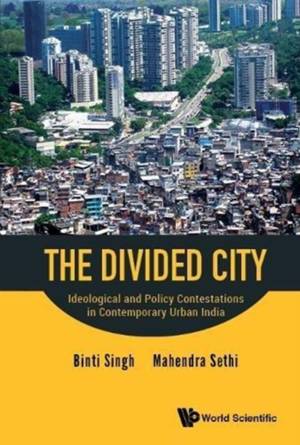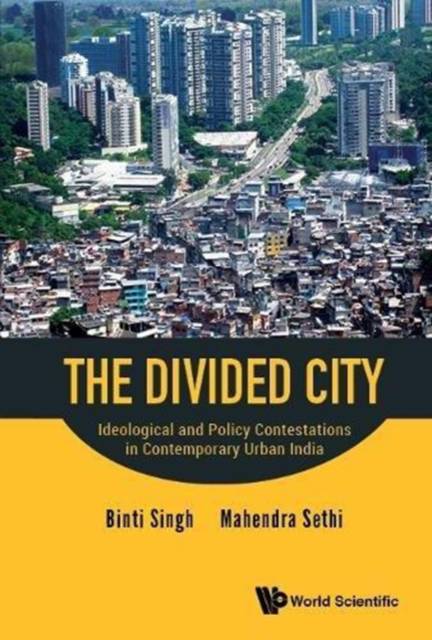
Bedankt voor het vertrouwen het afgelopen jaar! Om jou te bedanken bieden we GRATIS verzending (in België) aan op alles gedurende de hele maand januari.
- Afhalen na 1 uur in een winkel met voorraad
- In januari gratis thuislevering in België
- Ruim aanbod met 7 miljoen producten
Bedankt voor het vertrouwen het afgelopen jaar! Om jou te bedanken bieden we GRATIS verzending (in België) aan op alles gedurende de hele maand januari.
- Afhalen na 1 uur in een winkel met voorraad
- In januari gratis thuislevering in België
- Ruim aanbod met 7 miljoen producten
Zoeken
Divided City, The: Ideological and Policy Contestations in Contemporary Urban India
Binti Singh, Mahendra Sethi
Hardcover | Engels
€ 155,95
+ 311 punten
Omschrijving
The Divided City contributes to the growing body of scholarly work on cities of the global South. Cities in developing countries, particularly emerging economies, are undergoing rapid urbanization and social transition. Empirically grounded to the contemporary urban situation in India, The Divided City is set in an opportune moment to assess how cities fare up to the challenge of inclusive urbanization. It highlights how the urban pathway of contemporary India departs from the goal of inclusion in multiple ways -- access to energy, public services, architecture, land, infrastructure, commons, and cultural and civic spaces. It simultaneously interrogates both policy and theory with intermingling issues like informality, privatization, political economy and gender divide in the contemporary Indian city. The book argues for greater urban inclusion (social, economic and environmental) acknowledged in principle, in national and international urban policy frameworks.
Specificaties
Betrokkenen
- Auteur(s):
- Uitgeverij:
Inhoud
- Aantal bladzijden:
- 280
- Taal:
- Engels
Eigenschappen
- Productcode (EAN):
- 9789813226975
- Verschijningsdatum:
- 23/08/2018
- Uitvoering:
- Hardcover
- Formaat:
- Genaaid
- Afmetingen:
- 152 mm x 229 mm
- Gewicht:
- 544 g

Alleen bij Standaard Boekhandel
+ 311 punten op je klantenkaart van Standaard Boekhandel
Beoordelingen
We publiceren alleen reviews die voldoen aan de voorwaarden voor reviews. Bekijk onze voorwaarden voor reviews.









